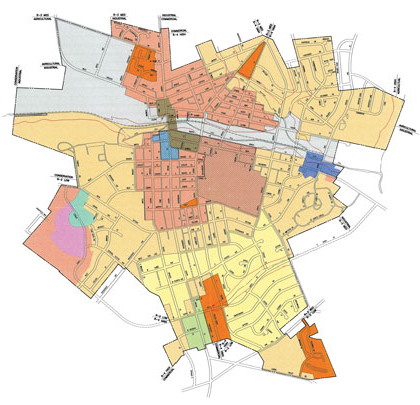Businesses and developers often apply for zoning permits and building permits from the municipalities in which they operate or wish to establish an operation. In the excitement and rush to get a new project underway, occasionally businesses file applications for the wrong permit, make mistakes, or provide incorrect information on the application itself. This article will help you understand when some form of zoning approval is needed and when a building permit is required, and explain potential consequences of mistakes in filing permit applications.
ZONING APPROVAL
Most development is regulated by a local zoning code and a local building code. In determining what types of permits or approvals are required, it is helpful to analyze the purpose of a zoning code versus a building code. The zoning code is used to ensure that the applicant’s intended use is compatible with other uses in the surrounding area (often referred to as a zoning district), and to set “area” restrictions on buildings located within each district. Area restrictions govern the outward appearance of buildings in each zoning district, and may include items such as minimum and maximum setback, height, size, parking, lighting, and landscaping requirements. The building code is complementary to the zoning code, but generally contains much more specific regulations regarding architectural plans, materials that will be used, and methods of construction to ensure that all buildings in the city are constructed to certain minimum standards and are safe for their intended use.
Obtaining a type of zoning permit or other approval is generally the first hurdle a business must clear. During this process, preliminary design sketches are often submitted to the city’s planning and zoning staff, and the applicant works directly with the city to explain how it intends to use its property. Once the zoning permit is in hand the business can seek a building permit, which generally requires submission of detailed construction plans and significant interaction between the business’ architect and the local building official.
MISTAKES AND ERRORS
But what happens if a business makes a mistake on a zoning or building permit application, and the permit is issued in error or based on that mistake? Although each city code may provide different penalties, the following are a few typical examples of the consequences a business may face should this situation arise.
First, any fact asserted in an application that could mislead the city may be viewed as a material discrepancy and may be grounds for invalidating the permit. In such case, the city could issue a stop work order, which would significantly delay the development process and potentially cost a business time and money while the city investigates the effect of having had inaccurate information submitted to it. Of course, a city could take a less strict position and impose lesser or no penalties if an innocent mistake or typographical error is made than it would if a material misrepresentation is made, but the city will have wide discretion in determining materiality.
Second, municipal codes often require applicants to provide all information deemed necessary by the city. Providing false information, whether intentional or otherwise, may be viewed as a violation of the code, for which one could be subject to a fine, jail time, or both.
Third, in many states making false statements before a public body, including statements certified on an application submitted to a public official, constitutes the crime of perjury, which may be classified as a felony punishable by significant jail time.
Finally, if the city does not discover inaccurate information in a permit application until the development has been completed, the possibility still exists that the city could revoke the permit. Even after one acts in reliance on a permit and expends money, incurs liability, or otherwise materially changes one’s position, a city may revoke that permit if issued in violation of city ordinances, or if material misrepresentations are made in obtaining a permit. Most concerning is the fact that a city may have the right to require improvements constructed pursuant to an invalid or revoked permit to be removed.
Although completing zoning and building permit applications may seem like a task that requires minimal effort, it is worth being certain that the correct application has been completed with accurate information so as to avoid the loss of time, money, and goodwill with the city in which your business operates. ■
About The Author:
Brennen D. Soval is a partner in the St. Louis, Missouri, office of Husch Blackwell. Brennen concentrates his practice in the areas of real estate development and financing transactions and construction and design matters. He can be reached at brennen.soval@huschblackwell.com, or at 314.480.1763.
_________________________________________________________________________
Modern Contractor Solutions, March 2013
Did you enjoy this article?
Subscribe to the FREE Digital Edition of Modern Contractor Solutions magazine.

Avoiding Common Pitfalls in Zoning and Permit Applications


